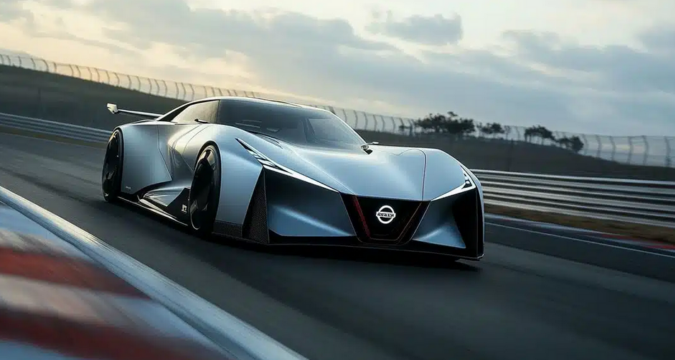
Solid-state batteries, which Nissan intends to install in its electric GT-R by 2028, are anticipated to boost power and efficiency and alter the behavior of EVs.
Solid-state batteries are about to be introduced by Nissan into its lineup of electric cars, with the venerable GT-R probably becoming the first to use this cutting-edge technology. With ambitions to start series production of EVs utilizing solid-state batteries by 2028, the business is now setting up a trial production line at its Yokohama, Japan, site.
Since solid-state batteries outperform existing lithium-ion batteries in terms of energy density, range, and charging speed, electric vehicles are predicted to undergo a significant transformation. With this technology, Nissan is expected to produce an electric sports car that will be more powerful than the Cyberbeast, Tesla’s most potent Cybertruck, which has 845 horsepower (621 kW). The automobile is expected to produce over 1,000 kW of power, or more than 1,300 horsepower.
Solid-state batteries have the potential to be utilized in a variety of automobiles, according to Ivan Espinosa, global vice president of product planning at Nissan. He cited the efficient and small energy storage of sports automobiles as the perfect use.
As a result, it is anticipated that these batteries would be used for the first time in the production model of Nissan’s Hyper Force concept, an advanced electric car that will replace the GT-R. This model, according to Espinosa, would be a great way to display the new technology.
Espinosa acknowledged that this technique may have high upfront expenses. He did, however, convey his belief that as technology develops, costs will come down and become more competitive.
October 2024 will see Nissan’s R35-generation GT-R production cease in North America, bringing an end to a legendary sports vehicle that has played a major role in Nissan’s range.